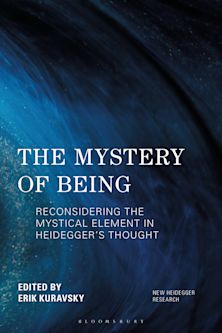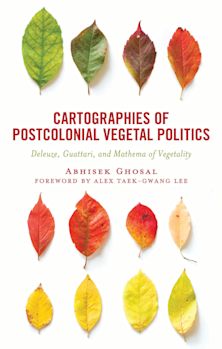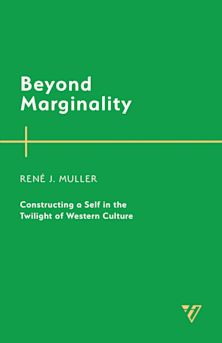- Home
- ACADEMIC
- Philosophy
- Philosophy - Other
- Exploring the Illusion of Free Will and Moral Responsibility
Exploring the Illusion of Free Will and Moral Responsibility
Gregg D. Caruso (Anthology Editor) , Susan Blackmore (Contributor) , Thomas W. Clark (Contributor) , Mark Hallett (Contributor) , John-Dylan Haynes (Contributor) , Ted Honderich (Contributor) , Neil Levy (Contributor) , Thomas Nadelhoffer (Contributor) , Shaun Nichols (Contributor) , Michael Pauen (Contributor) , Derk Pereboom (Contributor) , Susan Pockett (Contributor) , Maureen Sie (Contributor) , Saul Smilansky (Contributor) , Galen Strawson (Contributor) , Daniela Goya Tocchetto (Contributor) , Manuel Vargas (Contributor) , Benjamin Vilhauer (Contributor) , Bruce Waller (Contributor)
Exploring the Illusion of Free Will and Moral Responsibility
Gregg D. Caruso (Anthology Editor) , Susan Blackmore (Contributor) , Thomas W. Clark (Contributor) , Mark Hallett (Contributor) , John-Dylan Haynes (Contributor) , Ted Honderich (Contributor) , Neil Levy (Contributor) , Thomas Nadelhoffer (Contributor) , Shaun Nichols (Contributor) , Michael Pauen (Contributor) , Derk Pereboom (Contributor) , Susan Pockett (Contributor) , Maureen Sie (Contributor) , Saul Smilansky (Contributor) , Galen Strawson (Contributor) , Daniela Goya Tocchetto (Contributor) , Manuel Vargas (Contributor) , Benjamin Vilhauer (Contributor) , Bruce Waller (Contributor)
You must sign in to add this item to your wishlist. Please sign in or create an account
Description
Exploring the Illusion of Free Will and Moral Responsibility investigates the philosophical and scientific arguments for free will skepticism and their implications. Skepticism about free will and moral responsibility has been on the rise in recent years. In fact, a significant number of philosophers, psychologists, and neuroscientists now either doubt or outright deny the existence of free will and/or moral responsibility—and the list of prominent skeptics appears to grow by the day. Given the profound importance that the concepts of free will and moral responsibility hold in our lives—in understanding ourselves, society, and the law—it is important that we explore what is behind this new wave of skepticism. It is also important that we explore the potential consequences of skepticism for ourselves and society. Edited by Gregg D. Caruso, this collection of new essays brings together an internationally recognized line-up of contributors, most of whom hold skeptical positions of some sort, to display and explore the leading arguments for free will skepticism and to debate their implications.
Table of Contents
Introduction: Exploring the Illusion of Free Will and Moral Responsibility
Part 1: Philosophical Explorations: Free Will Skepticism and Its Implications
Chapter 1: Skepticism about Free Will
Chapter 2: The Impossibility of Ultimate Responsibility?
Chapter 3: Determinism, Incompatibilism and Compatibilism, Actual Consciousness and Subjective Physical Worlds, Humanity
Chapter 4: The Stubborn Illusion of Moral Responsibility
Chapter 5: Be a Skeptic, Not a Metaskeptic
Chapter 6: Free Will as a Case of “Crazy Ethics”
Chapter 7: The Potential Dark Side of Believing in Free Will (and Related Concepts): Some Preliminary Findings
Chapter 8: The People's Problem
Chapter 9: Living Without Free Will
Chapter 10: If Free Will Doesn't Exist, Neither Does Water
Chapter 11: Free Will and Error
Part 2: Scientific Explorations: The Behavioral, Cognitive, and Neurosciences
Chapter 12: The Complex Network of Intentions
Chapter 13: Experience and Autonomy: Why Consciousness Does and Doesn't Matter
Product details
| Published | Jul 05 2013 |
|---|---|
| Format | Ebook (Epub & Mobi) |
| Edition | 1st |
| Extent | 344 |
| ISBN | 9780739177327 |
| Imprint | Lexington Books |
| Publisher | Bloomsbury Publishing |
About the contributors
Reviews
-
For those who have tuned out the free will literature, there are a few chapters that are novel and well worth your attention. Then for the free will aficionados, at least most of the chapters will be of interest. And for anyone considering assigning this book or portions of it for an upper-level or graduate course on free will, there are several chapters that will be informative and catch students up on much of the state of the debate. This is, in fact, one of the strengths of the collection; there is something here for everyone. ... On the whole, this collection is an excellent contribution to the ongoing free will debate. Those interested or engaged in that debate will find much to appreciate (or argue vociferously against), including those chapters that could not be fit into this review. And even for those readers who only occasionally re-acquaint themselves with this debate, there are certain chapters well worth their time.
Notre Dame Philosophical Reviews
-
Exploring the Illusion of Free Will and Moral Responsibility is a terrifically clear book and a welcome addition to the debate about free will.
Patheos
-
What’s wonderful about this compendium is both its inclusion of the broad range of approaches and disciplines now engaged in the growing literature on the critique of free will, but also the substantive character of many of the essays contributed. . . .The reader can get a real sense of the contours of the arguments and issues on the illusion or skeptical side of the free will debate. Moreover, there is some good transdisciplinary work here, not just side-by-side essays by scientists and philosophers talking past each other. The volume tells us where the field currently is and also gives us a sense of how the free will debate is actually advancing toward greater understanding. Perhaps we can even discern some glimmer of hope for a resolution or a degree of consensus that could, in the near future, underlie or give rise to practical engagements to bring about significant social transformations and innovations toward a more humane society. Kudos to Caruso.
Neuroethics
-
Just 20 years ago, skepticism about free will and moral responsibility was a position that few in the philosophical community took seriously. That has changed, thanks in large part to the work of the authors in this volume. Caruso has collected contributions from the most prominent proponents and critics of free will skepticism. His insightful and engaging introduction sets the stage beautifully for philosophers and non-philosophers alike. Anyone interested in this topic of such profound importance should buy this book.
Tamler Sommers, University of Houston

ONLINE RESOURCES
Bloomsbury Collections
This book is available on Bloomsbury Collections where your library has access.



































